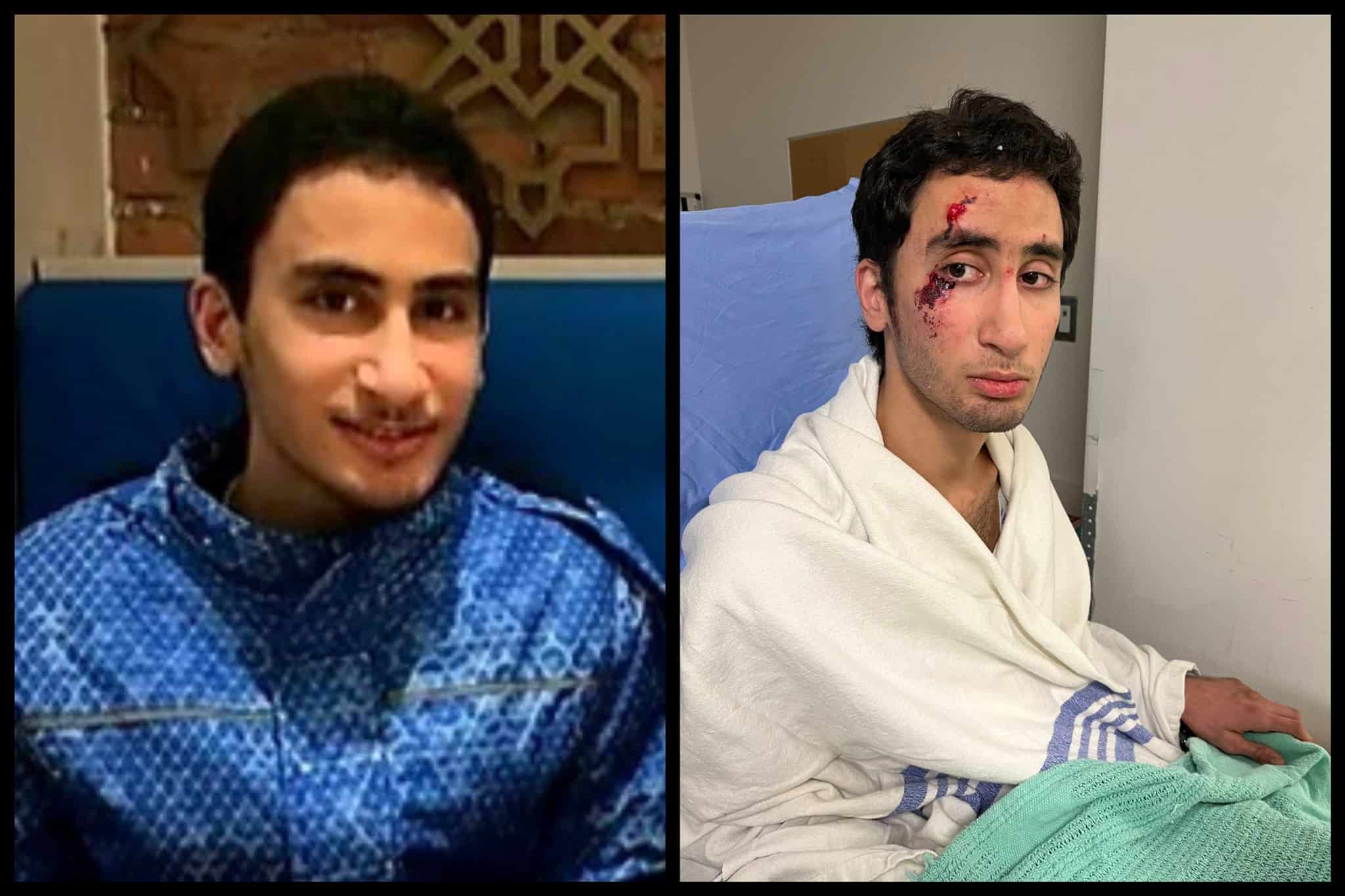Father of Tasered autistic teen continues legal case after review finds no police misconduct in Mississauga
Published November 8, 2023 at 3:12 pm

The father of a teen with non-verbal autism is continuing legal action against Peel Regional Police after an investigation found no misconduct when the boy was Tasered just over one year ago.
Abdullah Darwich was 19 years old when he wandered from his home and was Tasered by a Peel police officer while playing in a pile of leaves on Nov. 4, 2022.
At the time police said they received a report of “a suspicious person in a state of undress, attempting to enter a vehicle and a house.”
Abdullah was sent to hospital in handcuffs with Taser injuries.
After one year, Abdullah’s father Majd Darwich says his son, now 20 years old, has not recovered from the psychological impacts of the police encounter. He remains distrustful of people and won’t get near anyone he doesn’t know, particularly if they are carrying a tool.
“Even the doctor, he won’t go to the doctor,” Majd tells insauga.com.
Peel Regional Police conducted a review of the incident and said they recognized the “severe impact” the incident had on the teen, his family and the entire community. In May, they launched an autism strategy in which Majd was consulted.
Autism advocates called for more police training in the wake of the news.
Majd asked for an independent investigation and last month he received the final report from the Office of the Independent Police Review Director.
The report, which Majd shared with insauga.com, finds “there are no reasonable grounds to believe that misconduct, as defined in the Police Services Act, occurred.”
Majd complained police used unnecessary force on his son, unlawfully apprehended and detained him, and police didn’t tell him why his son was detained. Police failed to check the vulnerable persons’ registry where Abdullah was registered.
The Office of the Independent Police Review investigation included interviews with police who responded to the scene along with a special constable with Toronto Community Housing who was passing by and assisted police.
The special constable arrived when only one police officer was on scene. The responding officer and other officers who came later believed Abdullah had taken drugs and was experiencing some type of delirium.
The special constable “recognized [Abdullah] as likely autistic and not someone experiencing excited delirium,” according to the report. He told the officer “this looks like this is an autistic kid” but he didn’t recall if the officer responded.
He said the officer was struggling to get handcuffs on Abdullah but he was not “assaultive or actively resistant.”
At that point, Abdullah had already been Tasered.
In his interview, the responding officer said when he arrived, bystanders, who appeared frightened, pointed to Abdullah who was playing in a pile of leaves.
None of these bystanders were included in the independent investigations — a fact that puzzles Majd.
“Although there were a lot of civilians around Abdullah during this interaction, they did not ask any of them (for statements),” Majd says.

The first responding officer says he tried to speak to Abdullah when he arrived but, of course, as Abdullah is non-verbal, there was no response.
The officer stepped closer and Abdullah attempted to get up. The officer then believed Abdullah was attempting to flee. He decided to Taser him as he was concerned Abdullah “would run into someone’s car, house or possibly into traffic.”
He believed Abdullah posed a danger to himself and others and there was an immediate need to apprehend him.
The officer said he “vividly recalls the incident as he had never experienced someone who was able to continually push himself up while being Tased because they would be experiencing a lot of pain.”
He thought Abdullah was experiencing “excited delirium or psychosis because he did not appear to be perceiving the pain and stress from being Tased.”
Asked why he didn’t attempt to physically hold him down instead of using the Taser, the officer said he thought the teen might have overpowered him or was hiding a weapon in the leaves.
“I don’t know what he has under the leaves, he could have something close by and now I am hands-on, and he grabs a knife, a weapon, a rock, I don’t know. I keep time and distance as I am on my own.”
He said he didn’t believe Abdullah was autistic as he was able to “run and resist the strength of three people who were trying to secure him.”
The officer said he didn’t consult the vulnerable persons’ registry because the call was for a “suspicious person” attempting to get into cars and houses.
A short time later, Majd arrived and told the officer he was Abdullah’s father. The officer didn’t allow Majd to get close to his son as “he was concerned about the cables and probes from the CEW (conducted energy weapon or Taser)…”
The investigation found no misconduct. The officer had reasonable cause to believe that Abdullah was a danger to himself or others, according to the report. And police directives say handcuffs should not be removed from a prisoner until the prisoner is in a controlled environment (e.g., cells, detention centre or hospital room).
Majd says he is disappointed with the results of the investigation. He believes the officers did do something wrong and failed to protect Abdullah’s safety.
“They are trying to protect their people,” he says.
About six months ago he filed a lawsuit against Peel Regional Police and plans to continue that process. Majd understands police may offer a settlement but he is unsure if he will accept it.
In the meantime, Majd hopes therapy sessions will help his son recover to back to more happy person he was before the police encounter.
INsauga's Editorial Standards and Policies


